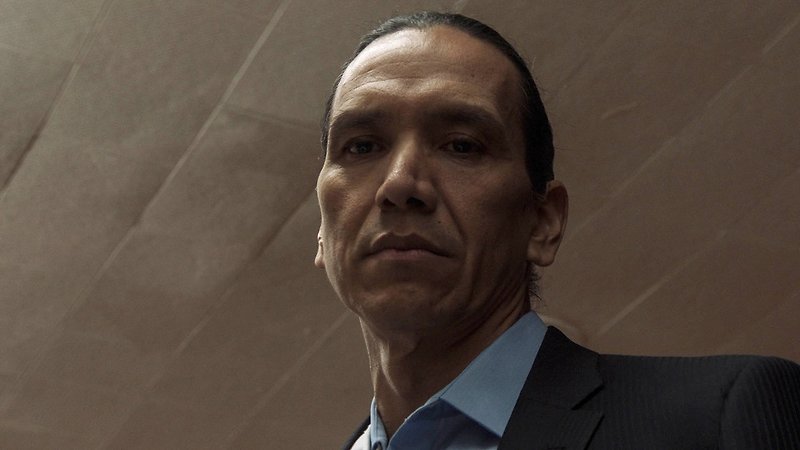A shocking crime covered up in childhood bubbles back to the surface for two estranged Ojibwe men in a relentless debut feature from Native American director Lyle Mitchell Corbine Jr.


So many movies rush to assign reductive labels of good and evil, whereas Wild Indian wants to understand all the competing pressures on its protagonist.
Screened as part of NZIFF 2021
Wild Indian 2021
“The title of Wild Indian is as much of a provocation as the movie itself. Set in the 1980s and the present day, with a prologue set centuries in the past, it’s about a couple of Ojibwe boys from a reservation who cover up the murder of a classmate, then carry guilt over their shared participation in that crime into adulthood.
Michael Greyeyes plays the adult version of the killer, Mak’wa, who changes his name to Michael and gets a respectable office job at a white-owned company... plus a blond Anglo wife (Kate Bosworth) and a beautiful baby. The grownup incarnation of his co-conspirator, Ted’O, aka Teddo (Chaske Spencer), ends up in prison, then eventually gets out and has trouble finding a job because of his criminal record and facial tattoos. It's only a matter of time before the men's paths cross again...
[T]his intimate, unrelenting debut feature from Ojibwe writer/director Lyle Mitchell Corbine, Jr. takes the bold step of insisting we treat it as astory of a couple of men who share a terrible secret before we try to frame it as a story that's mainly “about” indigenous cultures... the characters stand alone as thorny individuals whose decisions remain mysterious though the last scene...It seems clear that Corbine wanted to make a personal movie, not a history lesson or morality play aimed at hypothetical white viewers, and it’s impossible to look at the finished product without feeling that he succeeded.” — Matt Zoller Seitz, RogerEbert.com